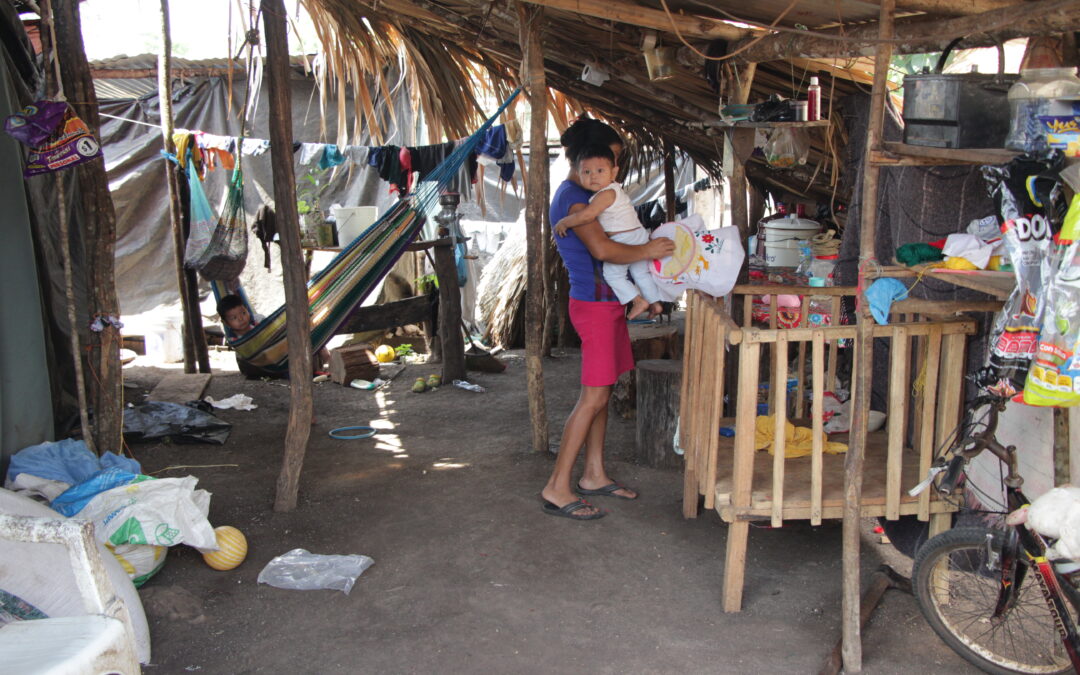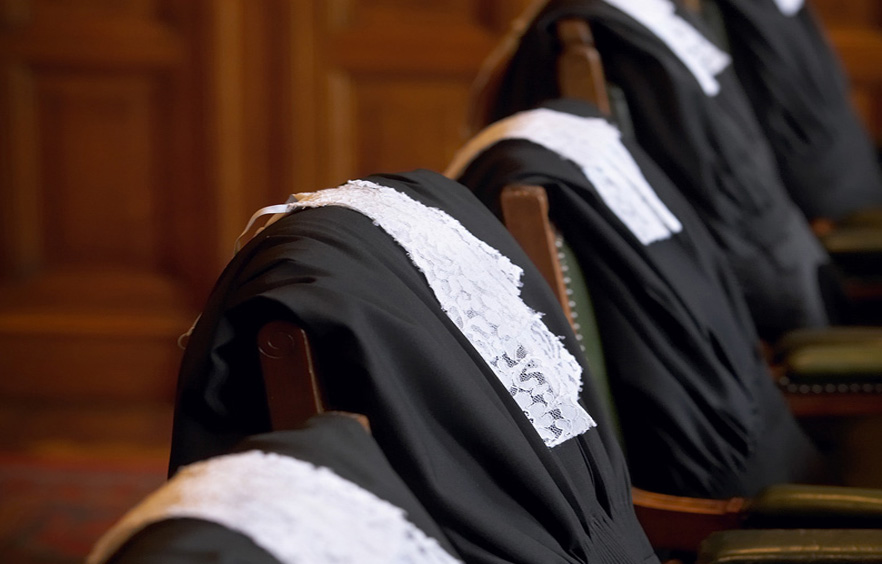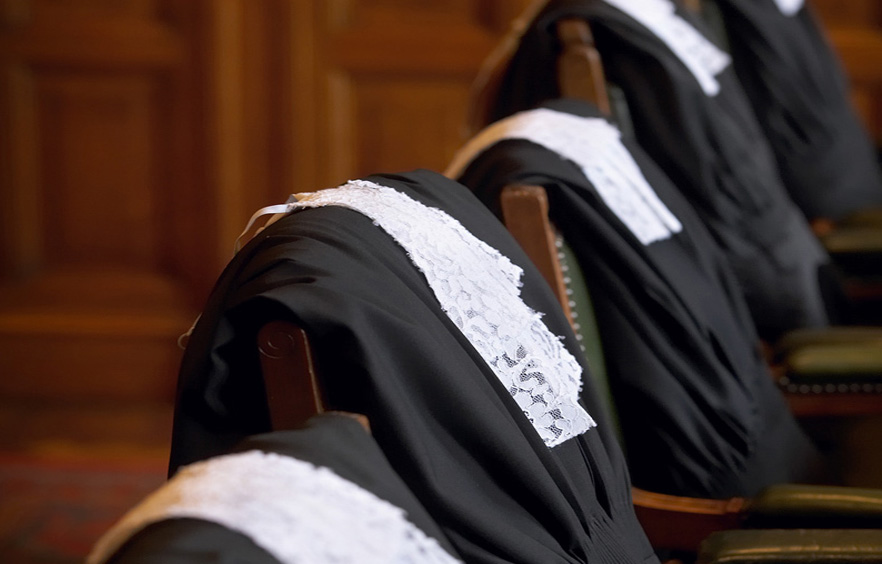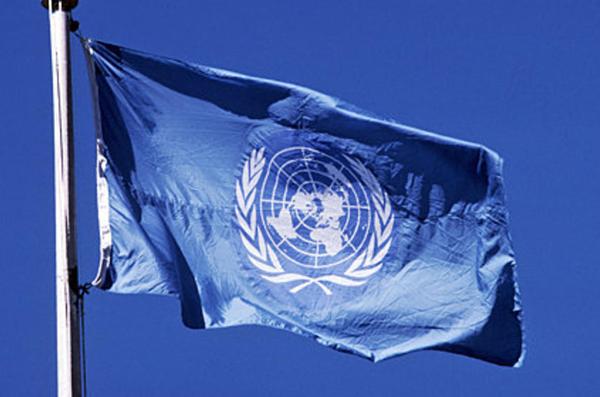
May 24, 2019 | Comunicados de prensa, Noticias
Una misión internacional de la CIJ concluye que la Comunidad Laguna Larga, que sufrió un desalojo forzoso a mediados del año 2017, continúa sin la atención humanitaria adecuada y sin una solución duradera.
La CIJ llevó a cabo una misión internacional que inició el 19 de mayo y finalizó el día 23 de mayo, para observar la situación de los desplazados internos de la Comunidad Laguna Larga, desalojados forzosamente el 2 de junio de 2017, en el norte del departamento de El Petén.
La misión estuvo integrada por Marie Berger, abogada de nacionalidad Suiza, de la Comisión de Derechos Humanos del Colegio de Abogados de Ginebra, Suiza; Nuria Carulla, de la organización Justicia y Paz en Barcelona, entidad de la Iglesia Católica para la defensa de los derechos humanos, experta en Solidaridad Internacional y Ramón Cadena, Director de la Comisión Internacional de Juristas para Centroamérica. La asesora legal de la Comisión Internacional de Juristas Francisca Sánchez, asistió en la organización de la misión.
La visita a la comunidad se llevó a cabo el día 21 de mayo, habiendo realizado una serie de reuniones con las autoridades de la comunidad, con un grupo de mujeres de la comunidad y finalmente, con un grupo abierto de miembros de dicha comunidad.
La CIJ se permite recordar que la Comisión Interamericana de Derechos Humanos (CIDH), en la medida cautelar número 412-2017 concluyó que “…los derechos a la vida e integridad personal de los pobladores desplazados de la Comunidad de Laguna Larga se encuentran en una situación de gravedad y urgencia de riesgo de un daño irreparable” y, en consecuencia, la CIDH estableció diferentes medidas de protección a favor de las y los pobladores de dicha comunidad en la medida cautelar ya identificada.
Leer más: Guatemala-visita a Laguna Larga-News-web story-2019-SPA

May 20, 2019 | Communiqués de presse, Nouvelles
L’ICJ, l’Ordre des avocats de Genève et la communauté juridique de Genève joignent leurs forces pour lancer l’ICJ-Geneva Lawyers International Cooperation Initiative qui consistera en des missions de coopération sur les cinq continents afin de soutenir les avocats et magistrats menacés dans leur indépendance et ainsi œuvrer à la promotion de l’Etat de droit.
La première d’entre elles commence demain 21 mai. Une avocate de l’Ordre des avocats de Genève va se rendre au Guatemala pour enquêter sur le déplacement forcé de la communauté indigène de La Laguna d’El Petén.
D’une manière générale, ces missions consisteront notamment en des :
- Observations de procès ;
- Participations à des missions d’enquête ;
- Soutiens à l’indépendance des avocats et des Barreaux ;
- Participations à des activités de formations ;
- Expertises et soutiens académiques.
Depuis sa création en 1952, l’ICJ joue un rôle unique et prééminent en tant qu’organisation non-gouvernementale pour la défense de l’Etat de Droit dans le monde auquel participe l’indépendance des juges et des avocats.
De par la présence de son siège à Genève depuis 60 ans, l’ICJ souhaite cultiver son lien particulier avec la Cité, la faire rayonner et partager l’esprit de Genève.
Pour Michaël Sombart, Directeur des Partenariats Stratégiques de l’ICJ : “Il s’agit de renouer un lien professionnel fort entre l’ICJ, l‘Ordre des avocats de Genève et la communauté juridique genevoise. C’est aussi une opportunité de porter le message de la Genève humanitaire au-delà des frontières et de bénéficier de la réputation, neutralité et compétence de la communauté juridique suisse.”
“Cette initiative est bienvenue et nous la soutenons avec engagement,” souligne Me Sandrine Giroud, Membre du Conseil de l’Ordre des avocats de Genève et Présidente de sa Commission des droits de l’Homme. “L’Etat de droit est attaqué partout dans le monde et les avocats jouent un rôle primordial pour sa défense et l’impartialité de la justice. Notre soutien à l’ICJ-Geneva Lawyers International Cooperation Initiative est en ligne avec la mission de l’avocat comme rempart contre l’arbitraire et la tradition de défense de la défense de l’Ordre des avocats de Genève. Nous nous réjouissons de cette collaboration qui participe du combat pour la justice et le respect des garanties et droits fondamentaux.”
Pour Me Nicolas Gürtner, Premier Secrétaire du Jeune Barreau de l‘Ordre des avocats de Genève : “Ce projet offre une chance remarquable pour de jeunes avocats d’œuvrer, aux côtés des augustes juristes de l’ICJ, en faveur de la garantie de l’Etat de droit.”
Le Comité de Pilotage de ce projet comprend :
- L’ICJ ;
- Pour l’Ordre des avocats de Genève : la Commission des droits de l’Homme et le Jeune Barreau ;
- Des représentants du monde de la magistrature et académique genevois dont le Professeur Robert Roth, ancien Président de la Cour de Cassation, ancien directeur de la Geneva Academy, Professeur Emérite de l’Université de Genève
Contact :
Michaël W. Sombart, ICJ, Directeur des Partenariats Stratégiques, t: +41 22 979 38 31 ; m: +41 77 965 98 45 ; e: michael.sombart(a)icj.org

May 20, 2019 | News
The ICJ, the Geneva Bar Association and the Geneva legal community have joined forces to launch the ICJ-Geneva Lawyers International Cooperation Initiative. Under the Initiative, Geneva lawyers will join ICJ missions on the five continents to support the independence and integrity of lawyers and judges at risk, and to promote the Rule of Law.
The Initiative launches with a mission tomorrow, May 21st. A lawyer from the Geneva Bar Association will go to Guatemala to work the ICJ team and lawyers investigating and fighting the forced displacement of the indigenous community of La Laguna de El Petén.
Missions under the initiative will typically involve, among other things:
– Trial observations;
– Fact-finding missions;
– Support for the independence of lawyers and bar associations;
– Capacity building and training activities;
– Expertise and academic support.
Since its founding in 1952, the ICJ has played a unique and preeminent role as a non-governmental organization for the defense of the Rule of Law around the world, and the independence of judges and lawyers.
With the presence of its headquarters in Geneva for more than 60 years, through the Initiative the ICJ is further deepening its special bond with the city, to spread and share the spirit of Geneva.
“International support and solidarity are crucial to the work of lawyers defending the human rights of those who are often marginalized from power,” said Michaël Sombart, Director of Strategic Partnerships of the ICJ. “With this project the ICJ can help lawyers around the world benefit from the reputation and high standing of the Swiss legal community and bring the message of the Genève humanitaire beyond borders.”
“This initiative is welcome and we support it with commitment,” said Sandrine Giroud, member of the Geneva Bar Council and Chair of its Human Rights Commission. “The Rule of Law is under attack around the world and lawyers play a vital role in its defense and the impartiality of justice. Our support for the ICJ-Geneva Lawyers International Cooperation Initiative is in line with the lawyer’s mission as a bulwark against the arbitrariness and the defense advocacy tradition of the Geneva Bar Association. We welcome this collaboration, which is part of the fight for justice and respect for fundamental rights and guarantees. ”
Nicolas Gürtner, First Secretary of the Young Bar Association of the Geneva Bar Association, said: “This project offers a remarkable opportunity for young lawyers to work alongside the jurists of international repute of the ICJ in favour of the guarantee of Rule of Law.”
The Steering Committee for the Initiative includes:
– The ICJ;
– For the Geneva Bar Association: the Commission on Human Rights and the Young Bar Association;
– Representatives of the Geneva judicial and academic world, including Professor Robert Roth, former President of the Court of Cassation, former director of the Geneva Academy, Professor Emeritus of the University of Geneva
Contact :
Michaël W. Sombart, ICJ, Director of Strategic Partnerships, t: +41 22 979 38 31 ; m: +41 77 965 98 45 ; e: michael.sombart(a)icj.org

May 19, 2019 | News
Ahead of the 2020 review of the human rights treaty body system, the ICJ, together with a number of NGO partners, have made a joint submission to the UN Secretary-General ahead of his third and last biennial report to the UN General Assembly later this year on the status of the human rights treaty body system and the progress achieved in realising greater efficiency and effectiveness in the work of the treaty bodies.
The joint NGO submission focuses on:
- the objectives and principles for the 2020 review;
- visibility and accessibility;
- membership;
- working methods and inter-committee coordination; and
- the growth of the treaty body system and adequate funding.
The full submission is available
here.

May 15, 2019 | News
The ICJ today condemned a series of the acts of violence directed against the Muslim community in the aftermath of the Easter attacks on 21 April in Sri Lanka directed at churches and other places.
In the most recent attacks on 13 May, at least one person was killed in anti-Muslim mob violence in Nattandiya. In addition, various attacks have resulted in the looting and destruction of mosques, Muslim-owned businesses and houses in several parts of the island including Negombo, Chilaw, Kurunegala and Gampaha.
The ICJ called upon the State authorities to conduct independent, impartial and effective investigations into the attacks and bring all perpetrators to justice in line with international standards. Furthermore, the ICJ urges the Government of Sri Lanka to send a clear public message that acts of violence against any religious minorities are not tolerated.
“Attacks perpetrated against religious minorities are more likely to occur in a climate of impunity” said Fredrick Rawski, ICJ’s Regional Director for Asia and the Pacific. “The fact that Sri Lanka has a history of serious violations of human rights of religious minorities makes it even more urgent that the Government act to safeguard the human rights of all persons and take immediate measures to protect members of religious minorities from further violence.”
Delayed action or inaction on the part of law enforcement authorities during and in the immediate aftermath of the attacks has further exacerbated the situation. Given the recurring patterns of mob violence against religious minorities in Sri Lanka, a handful of arrests will not suffice. It must be followed up by independent and impartial investigations and, where warranted, prosecutions as part of an effective preventive strategy to counter such collectively organized violence.
Under international human rights law, including the International Covenant on Civil and Political Rights, to which Sri Lanka is a party, States have a duty to protect freedom of religion, which includes persons from religious minorities against abuses committed against them by any person or group.
The Government of Sri Lanka must take appropriate security measures in response to the worst terror attack in recent years. However, it must ensure that the volatile situation is not made worse by inaction to prevent anti-Muslim violence and vigilantism. Moreover, the State must ensure that any counter-terrorism measure is adopted and implemented in line with its international human rights law obligations and does not explicitly or implicitly target a particular community.








